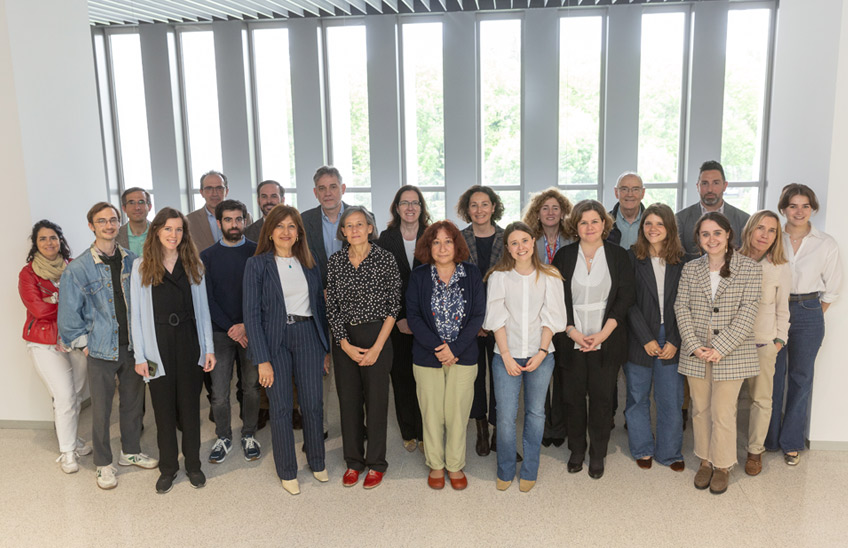"We get our information by reading only the headlines and this is not enough."
The University has organized an international symposium to analyze disinformation from the perspective of linguistics.

FotoManuel Castells<br>/Ponentes y asistentes al simposio ‘La lingüística frente a la amenaza de la desinformación'.
31 | 05 | 2024
"We inform ourselves by reading only the headlines and this is not enough". This was stated by Sara Robles Ávila, professor of language Spanish at the University of Malaga and speaker of the international symposium 'Linguistics facing the threat of disinformation: perspectives and methodologies of research', organized by the Institute for Culture and Society (ICS) and the School of Philosophy and Letters of the University of Navarra.
During her discussion paper, Robles analyzed the phenomenon of clicbait: eye-catching and misleading headlines that seek to persuade the reader to go to link. According to the expert, "their sensationalist and attractive form activates the peripheral route of persuasion of readers". Through linguistic resources, they persuade the reader to consume information that is not always truthful and, usually, of little relevance. For example, superlative, expressive or morbid adjectives ('the amazing change of the fashion influencer'), with quantifiers and lists or the use of imperative verbs and appellatives ('Don't miss these 10 health tips').
In addition, Robles warned that this subject of Structures linguistic are beginning to be seen in national print media, even in important news: "The typical features of clicbait news are maintained and any news is susceptible to enter this format". Although there is a lower prevalence of fraudulent headlines, the professor pointed out that they do not always give the information suggested in the headline.
Pseudo-media for ideological promotion
Another phenomenon that favors disinformation nowadays are the pseudo-media. In her lecture, Dolors Palau, professor at the Universitat de València, described them as "websites that imitate the forms and style of composition of journalists but violate journalistic conventions and mix information with comments of opinion and ideology". These media can try to "sell an ideology" or they can also promise information that "nobody wants to give and free of ideologies but that turn rational discrepancy into attacks devoid of arguments".
According to Palau, these media benefit from the digital context, they are created and destroyed quickly and are usually very critical of the rulers of the moment. For the expert, these media pose a risk of disinformation as they emulate legitimate media (often indistinguishable) but offer ideologized information, mixed with opinion and decontextualized. They can be distinguished because, in addition to using clickbait headlines, they are characterized by polarization, satire of ruling politicians, forced contrast of unrelated ideas (While you pay for electricity, the Government is dedicated to...' ) or the use of hyperlinks that do not lead to the information they suggest, among other strategies.
The symposium also dealt with topics such as translations and disinformation, discursive strategies of disinformation, government control over fake news and the promotion of media literacy. According to Edurne Garde, researcher at ICS and School and organizer of the symposium, linguistics plays a fundamental role in disinformation" as it allows the identification of some features and strategies that favor the distinction between fraudulent and truthful contents".
